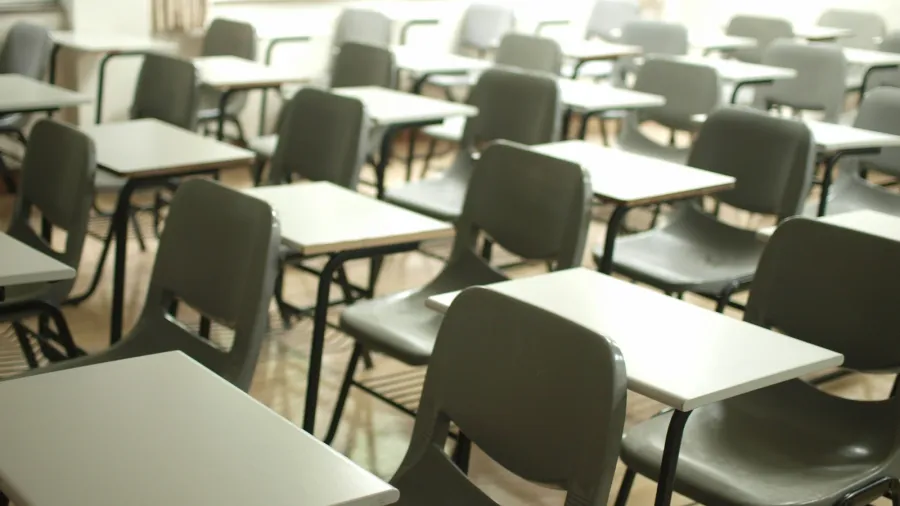
Hong Kong navigates educational resilience amidst ‘brain drain’
A total of 6,748 teachers fled their positions, straining Hong Kong’s education system.
As a leading global economic hub, Hong Kong puts emphasis on a resilient education system, nurturing the future leaders of the city-state.
However, in recent years, Hong Kong schools have been experiencing a “brain drain,” with 6,748 teachers (including teachers from kindergartens joining the Kindergarten Education Scheme, and also public sector and Direct Subsidy Scheme primary and secondary schools as well as aided special schools) leaving schools in the 2022-2023 school year.
This marks an increase of 4.4% in kindergartens, 1.4% in public primary schools, 2% in public secondary schools, and 2.1% in aided special schools in the 2022/23 school year compared to the 2021/22 school year.
“Currently, all economic and professional sectors in the HKSAR are making strenuous efforts to woo talents, and the success or otherwise in this worldwide scramble for professionals is crucial for sustainable development in the respective fields. School teachers are of no exception in this race,” Mervyn Cheung Man-ping, Advisor of HK Women Teachers’ Organisation and Chairman of HK Education Policy Concern Organisation told Hong Kong Business.
For years, Hong Kong has been renowned for hosting top-tier schools in Asia, solidifying its status as a pivotal region for high-quality education. This reputation is being compromised by the ongoing teacher exodus.
“There are various reasons for teacher wastage, which mainly include retirement, pursuing further studies, changing to other types of schools, taking up employment outside the teaching profession, and leaving the post due to other personal reasons. With the declining school-age population, the demand for teachers would decrease correspondingly,” the Education Bureau said.
Adding to this, Cheung said: “Normal retirements can still be reasonably considered accounting for the bulk of departures from the city’s teaching force. HK’s free and compulsory education up to Secondary Three was introduced in 1978, a policy which was followed by a massive expansion in the provision of basic education seats through a gigantic programme of new school development.”
He explained that because of that initiative, there was a rise in demand for new teachers in the ’80s, many of whom have reached or are approaching the formal retirement age of 60 in recent years. This has contributed to the high rates of natural attrition amongst local teachers.
Recognising this dilemma, the Education Bureau has set out “timely and appropriate” measures to ensure the quality of education and smooth operation of schools.
Professional and economic impact
“Regardless of the reasons behind the brain drain in the city’s schools, a dropout rate of 16.1% in KGs joining the Kindergarten Education Scheme in the academic year of 2022-23 among veteran teachers with no less than fifteen years of valid experience must not do any good to the local schools in areas of teaching, counselling, and extracurricular training of the teenagers in the SAR’s population,” Cheung said.
The urgency of this dilemma stems from the fact that the teacher exodus has impacted a substantial number of teenagers in Hong Kong who are still in their formative years. For an economy that values growth above all, this poses a threat to its future.
“Positions of middle management in the school sector, including assistant principals, chairpersons or heads of academic subject panels and such other functional areas as student discipline and careers guidance, were left vacant in appreciable numbers and became filled by teachers with much lower seniority and far less authority or influence in the teaching grades. This could unfavourably affect the operations of schools and the quality of training imparted to students across the school system,” he said.
Despite vacancies being filled, the lack of veteran teachers suggests that the concern over quality education persists and requires immediate attention.
Hong Kong’s status as a global economic hub has been bolstered by its high-quality workforce across various socio-economic sectors. This capability has enabled the city-state to sustain and nurture its economy effectively, despite the absence of natural resources.
“The metropolis has a multifarious network of excellent and well-recognised schools and universities which qualifies it to become or continue to function as an education hub at least in Asia,” said Cheung.
“If the territory is harassed by a noticeable drain of highly qualified teachers, the strong and competitive manpower edge in different fields will undesirably be cut back in the long run, which in turn will deal a heavy blow to the impressive growth of the city’s economy amid heated competition round the world,” he warned.
Measures
In the previous years, the EDB had continuously implemented measures including the all-graduate teaching force policy in the 2019-2020 school year, the establishment of the Professional Ladder for Teachers, as well as the improvement of the manpower of vice-principals in public sector primary and secondary schools.
In the 2020-2021 school year, the EDB also sought to improve the manpower of senior teachers and ranking arrangements of principals in public sector secondary schools.
“[We have also implemented the] improvement of manpower at the middle management level, [the] rationalisation of the pay structures for school heads and deputy heads in primary schools, and [the] enhancement of teachers’ promotion prospects starting from the 2022/23 school year,” the Education Bureau said.
With these measures, the EDB has hoped to stabilise Hong Kong’s education system. However, just after a few years, the brain drain persisted, suggesting the need for new and more effective measures.
To effectively tackle this issue, it is crucial to thoroughly examine the underlying factors contributing to this dilemma. For example, whilst retirement is unavoidable and experienced teachers are rightfully departing, it is now more critical than ever to support the current workforce capable of meeting the demands of the education sector, ensuring seamless retention and attraction of talent.
“Many teachers have voiced concerns over a perceived proliferation of responsibilities, both in and outside the classroom, in connection with the new policies and practices from the authorities which are eventually shouldered by the teachers under the school heads’ supervision,” Cheung said.
“The EDB has already taken steps to tackle the workload issue of teachers, such as rationalising the teaching curriculum for the Diploma of Secondary Education Examination, in order to free up more time and space for students and their teachers,” he added.
In doing so, the EDB aims to alleviate pressures on both teachers and students. Adjustments to work priorities may be considered to create a more conducive teaching and learning environment in schools, fostering a more fulfilling and connected pathway towards achieving career goals and ideals.
“Meanwhile, teachers’ status should be enhanced, and be brought more on par with peers in other professions, such as doctors, engineers, lawyers, and nurses. This could be done by staging appropriate publicity of the significant roles and contributions of school teachers in respect of the proper education and healthy growth of students during their vital formative years,” he said.
Furthermore, the EDB strives to strengthen the professional competencies of in-service teachers and principals and broaden their horizons through diversified professional development programmes.
“If students do not receive super training in schools, there will be adverse effects on university intakes which will eventually be transferred to and magnified in the local economic output and performance in [the] global contest in innovation and technology, as well as in attraction of financial investments and professional talents,” Cheung affirmed.



















 Advertise
Advertise






